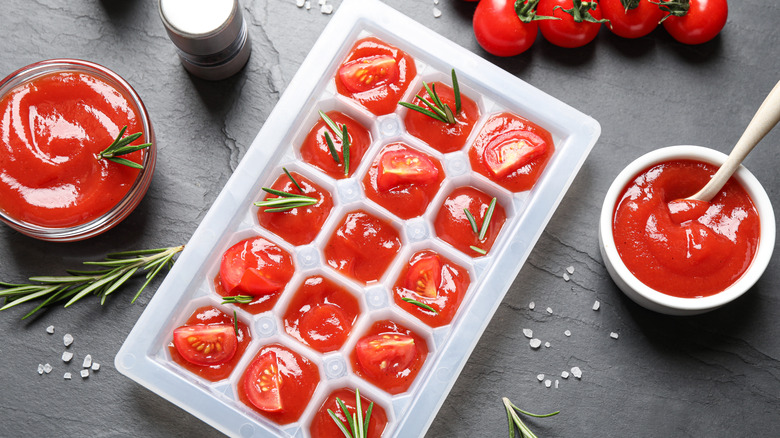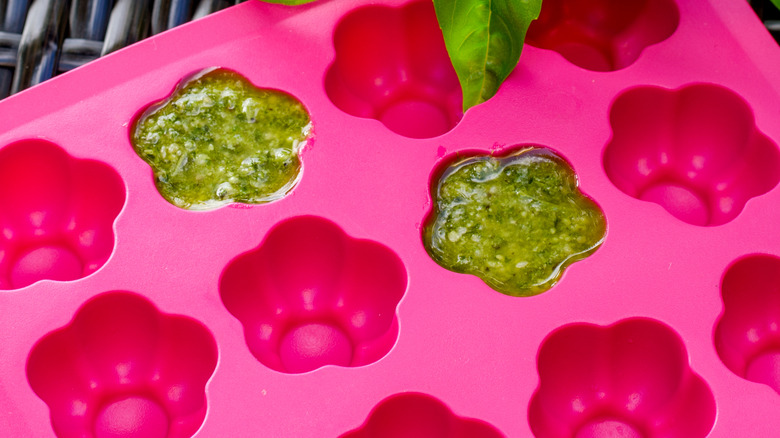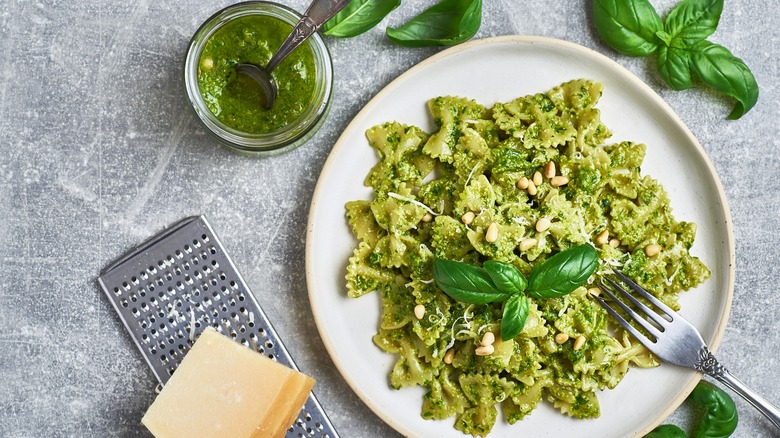Freeze Spaghetti Sauce In Ice Cube Molds To Save Yourself A Moldy Mess
Jarred spaghetti sauce is one of the pantry staples you can always count on in a pinch. It's flavorful and versatile, and it can keep in your kitchen, unopened, for over a year. But if you don't use a whole jar in one sitting, the clock starts ticking on that sauce. For example, a marinara will only stay fresh in the fridge for about five days. An herby and cheesy sauce, like pesto, could last even less time, maybe only three days before it starts to lose flavor.
Though worse than sauce gone bland is sauce gone moldy, which is a common risk with opened spaghetti sauce. So if you know you're not going to use all your sauce at once (be it homemade or jarred), you should freeze your spaghetti sauce in an ice cube tray to create individual portions of it that can last you for up to three months in the freezer.
How to freeze your sauce
Ice cube trays are an incredible tool for preserving all kinds of soups and sauces. An average ice cube tray will hold one ounce of liquid in each divot, or about two tablespoons. A single serving of sauce is usually about two ounces or two cubes. If you have larger two-inch ice cube trays, like the kind used for cocktails like an old fashioned, these will hold a little more than four ounces of liquid, for a saucy single serving or a modest double serving.
If your pasta sauce has just been opened — or you just finished making your show-stealing basic tomato sauce, you should freeze it as quickly as possible. Freeze your cubes overnight in an ice cube tray, then pop them out and store them in an airtight zip-top bag. (Don't store them in glass containers, which can expand and shatter in the freezer.) It should keep for about three months frozen, and you can melt individual cubes in a container in your fridge overnight, or pop them directly into a hot pan.
What sauces to freeze (and not to freeze)
Both fresh and jarred sauces can be frozen. In fact, this is a great way to take care of batches of surplus produce in the summer months when bags of tomatoes and bushels of basil are in abundance. Make an enormous batch of arrabbiata or pesto, and freeze what you won't use.
Just make sure that your sauce is mostly liquid, and that if it does contain chunks, they can be submerged. Pieces that stick up above the liquid may not freeze in the tastiest way. The same goes for herby sauces like pesto: If pieces of shredded basil are sticking out, add more olive oil to your ice cube tray to top them off. (This is also a great way to store herbs, by blending them with olive oil and then freezing them in ice cube trays.)
Sauces that don't freeze well include cheesy or creamy sauces, which may split. Emulsified sauces (think vinaigrette or hollandaise) also don't freeze well, as freezing will ruin their texture. Sauces that are too chunky will also have difficulty freezing, like bolognese or puttanesca.



